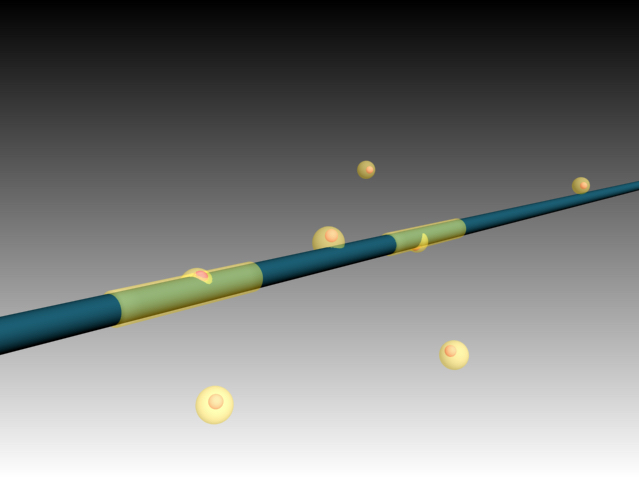NJCBM Director Joachim Kohn and Visiting Research Scholar Antonio Merolli have received a grant from the New Jersey Health Foundation to study “Can myelination be regulated by patterned electrical impulses in human Schwann cells?”
 Dr. Joachim Kohn (L) and Dr. Antonio Merolli (R)
Dr. Joachim Kohn (L) and Dr. Antonio Merolli (R)
In several neurodegenerative diseases, including multiple sclerosis, many of the debilitating symptoms are caused by the demyelination of nerves. Myelin is a substance that coats nerves and allows for nerves to properly transmit electrical impulses; without myelin, electrical signals in nerves either slow, or stop completely. Past research has been focused on how myelin forms and how myelination occurs in the early stages of life, but how to slow, stop, and reverse demyelination is still not understood.
The work funded by this grant is focused on applying electrical pulses, which mimic the electrical signals in nerves, to myelinating cells to encourage the growth of myelin along fibers that are about the same size as nerves. It is hoped that by finding a simple way to study the myelination process, we can gain a better understanding of how electrical impulses affect the formation of myelin. This could eventually lead to clinical treatments which use electrical signals to encourage the remyelination of nerves damaged by disease.

Graphic of cells attaching to a fiber and forming myelin
An article discussing this model is currently in press in the Journal of Materials Science: Methods in Medicine, titled “A suspended carbon fiber culture to model myelination by human Schwann cells”